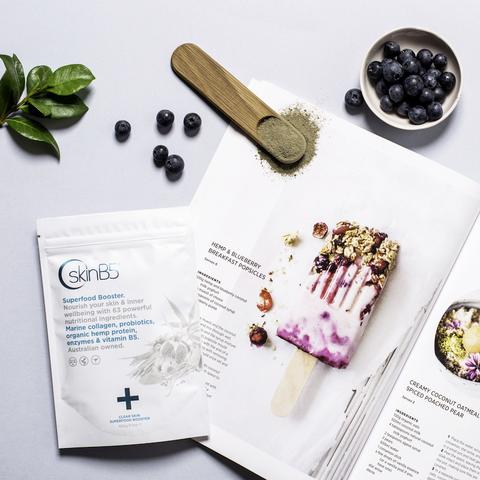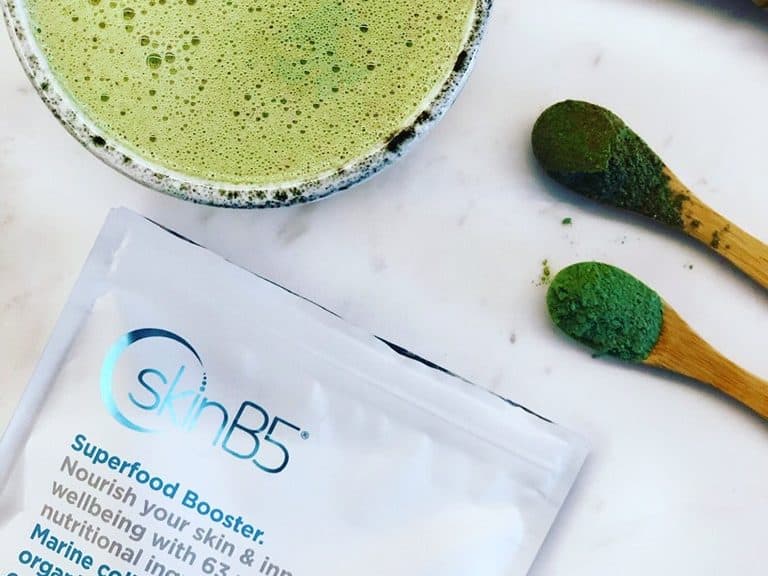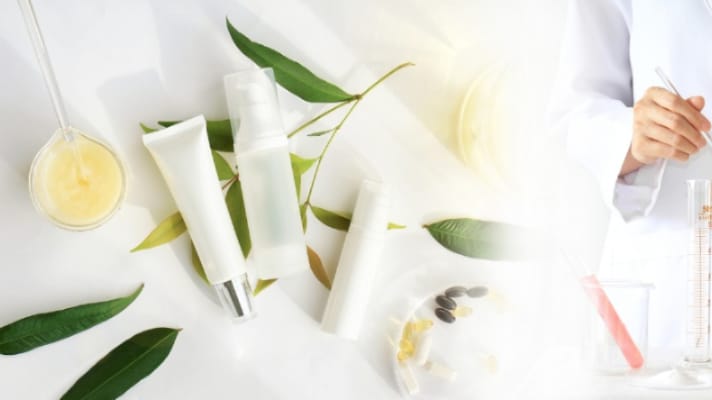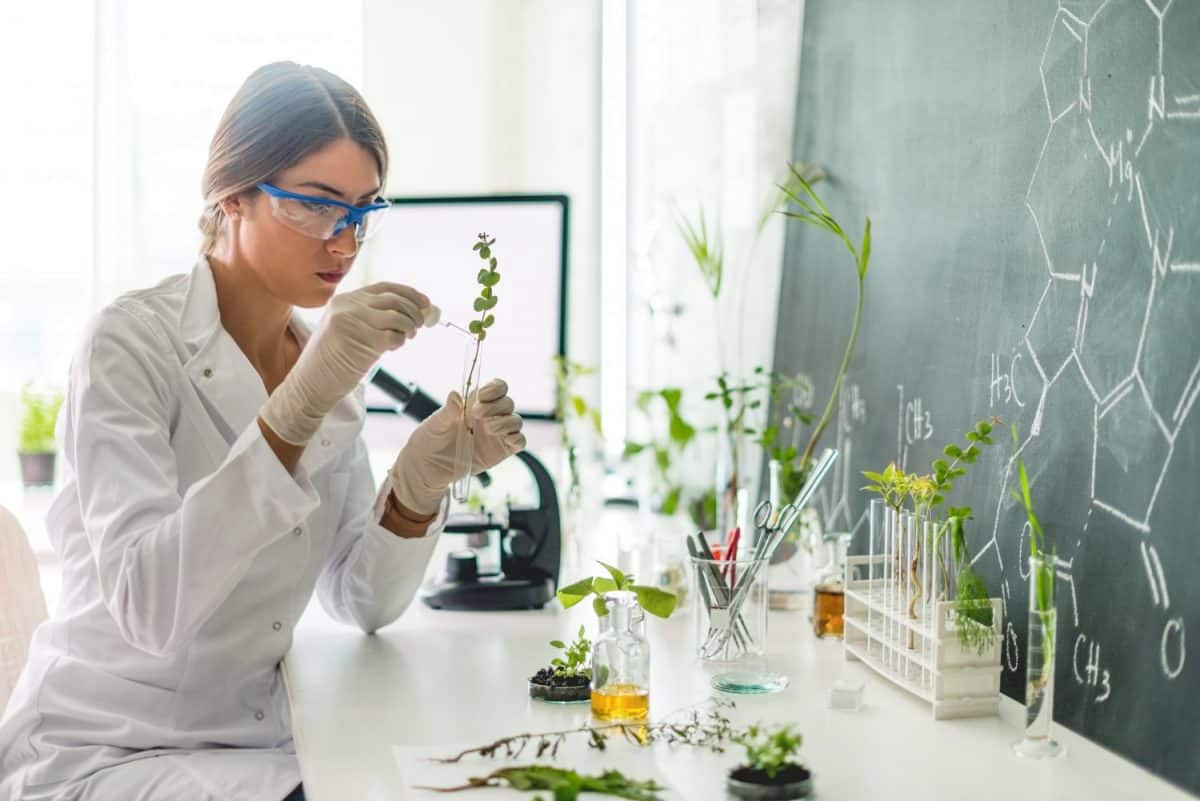“Antioxidant” is a buzz word in the skin and beauty industry, but what exactly is an antioxidant and what does it do?
Far from being a gimmicky addition to various lotions, potions and pills, antioxidants play a vital role in the health of our skin, immune system and almost every cell in your body.
What is an antioxidant?
Normal chemical reactions in the body create a byproduct known as a “free radical”. Some of these free radicals are helpful, such as those that help white blood cells to kill microbes. Others are less desirable and can cause damage to cells, proteins, or DNA structure.
They’re caused by oxygen molecules being split up, making them unstable and potentially damaging. When the level of free radicals is more than cells can deal with, the body is said to be in a state of “oxidative stress” – too many broken oxygen molecules running riot. Oxidative stress plays a role in many conditions, including arthritis, diabetes, inflammatory issues and cancer.
An antioxidant is a substance which acts against this process – it’s anti-oxidative damage. Antioxidants stabilise the free radicals and prevent them from causing further damage. Most of these helpful substances can be found in fruits and vegetables, in the form of vitamins, minerals and other colourful chemical compounds.
Different antioxidants have different functions within the body. Some protect fats from going rancid, some protect other nutrients within the body or help to remove toxins and heavy metals, and all of them prevent the damage free radicals can cause to various cells and cell mechanisms.
As there’s such a huge variety of antioxidants, there’s also a lot of truth to the recommendation that we “eat the rainbow”. Each coloured fruit or vegetable comes with its own free-radical-fighting benefits, and so consuming a range of purple, red, orange, yellow, green and white/brown plant foods ensures you’re getting a little bit of everything that’s good.
Antioxidants and Skin Care
Because free-radicals attack our DNA and cells, they are blamed for at least part of the cause of ageing. The jury is currently out on whether antioxidants can actually extend life, but there are many studies which support their use for protecting against oxidative stress and its many associated diseases.
Antioxidants protect against inflammation and so any kind of inflammatory skin condition can benefit from them, both orally and topically. They can also help to reduce the appearance of scars over time and improve the integrity and elasticity of skin. No wonder they’re in so many anti-ageing and acne products!
While a lot of sun damage is caused by dehydration, antioxidants can also help repair the oxidative damage created by sun-baking that little too long. They provide the same protection and repair services to cells affected by pollution, drugs, radiation and many other unwelcome substances – of which there are many in this day and age.
There’s a lot to be said for avoiding the triggers which cause ageing, such as smoking, processed foods and excess sunshine. It’s impossible to avoid everything though, such is the nature of the modern world we live in.
Antioxidants taken from a broad range of fruits, vegetables, herbs, spices and algae can be of huge benefit in reducing the effects of free radicals, and as a result, help with protecting and healing the skin.
Mem Davis is a naturopath, writer, and food lover. She loves feeling healthy and strong, and is a proud vegan nutrition advocate. In her spare time she goes hiking, attends live music events and hangs out with her cuddly cat.
Sources:
Mattson Porth, C. (2005). Pathophysiology: Concepts of Altered Health States. 7th ed. Philadelphia: Lippincott Williams & Wilkins.
Lobo V.,et al. (2010). Free radicals, antioxidants and functional foods: Impact on human health. [online] NCBI: US National Library of Medicine. Available at: https://www.ncbi.nlm.nih.gov/pmc/articles/PMC3249911/ [Accessed 16 Nov. 2018].
Szalay, J. (2016). What Are Free Radicals?. [online] Live Science. Available at: https://www.livescience.com/54901-free-radicals.html [Accessed 16 Nov. 2018].
Vadim N. Gladyshev. 2014. The Free Radical Theory of Aging Is Dead. Long Live the Damage Theory!. [ONLINE] Available at: https://www.ncbi.nlm.nih.gov/pmc/articles/PMC3901353/. [Accessed 16 November 2018].
Flavia Alvim Sant’anna Addor. 2017. Antioxidants in Dermatology. [ONLINE] Available at: https://www.ncbi.nlm.nih.gov/pmc/articles/PMC5514576/. [Accessed 16 November 2018].








Leave A Comment